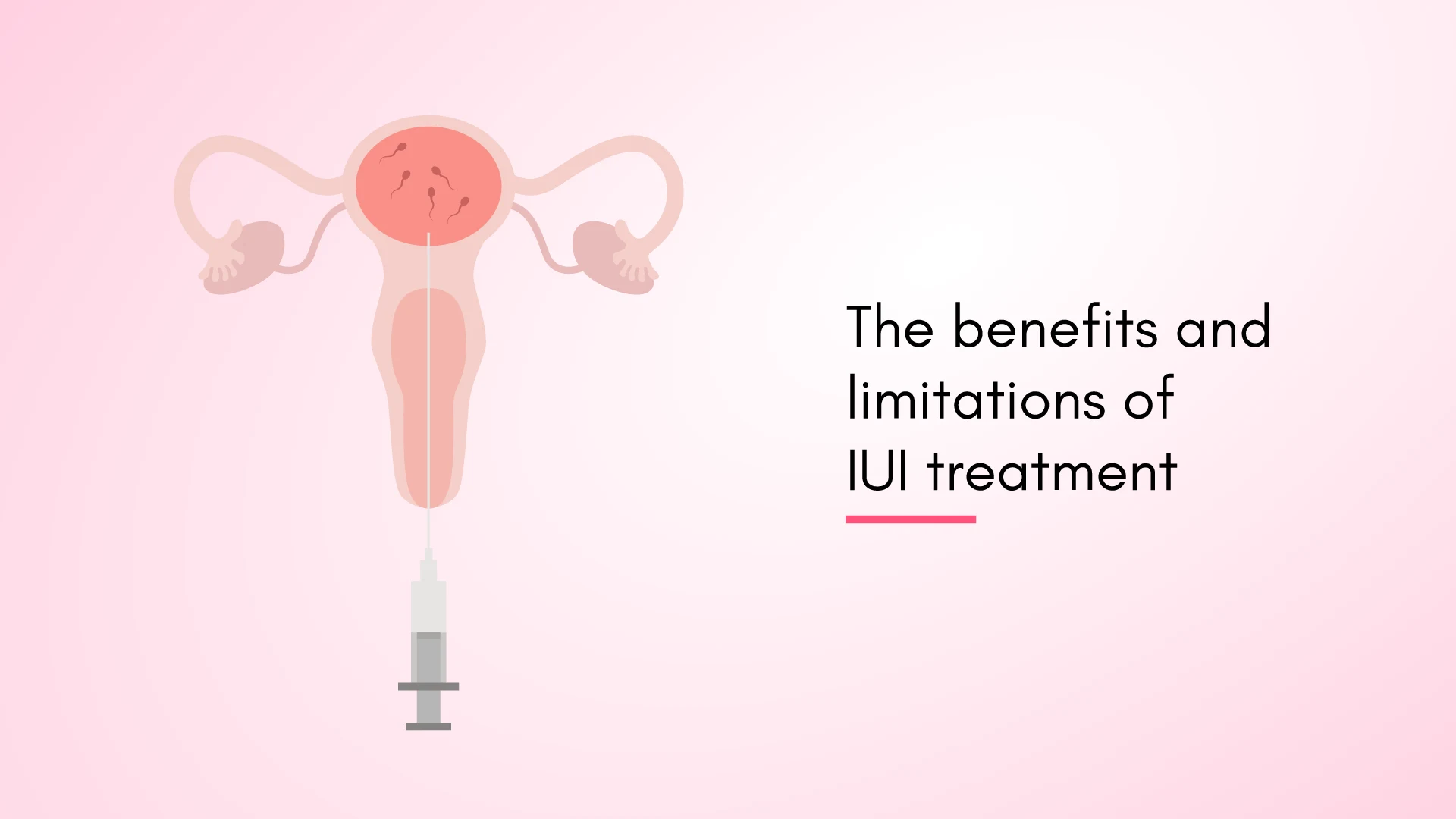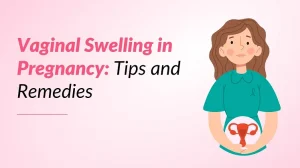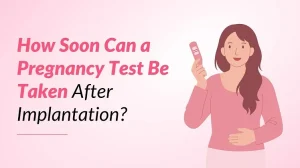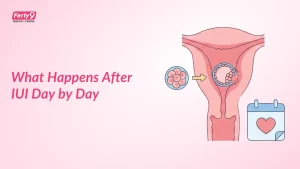Infertility can be a daunting challenge for many couples hoping to start a family. With about 17.5% of couples worldwide facing infertility, it’s a common issue that can cause emotional distress. If you’re among those affected, have you thought about intrauterine insemination (IUI)? as a viable option? Let’s explore how IUI pregnancy can help couples achieve their dream of having a child.
Suggested Read: The Pros and Cons of Sex after Insemination
What is IUI?
Intrauterine insemination (IUI) is a fertility treatment in which the sperm is directly placed into a woman’s uterus around the time of ovulation. This technique aims to increase the number of sperm that reach the fallopian tubes, thus increasing the chances of fertilization.
But how effective is IUI? Let’s dive into some numbers to give you a clearer picture.
Studies show that the success rate of IUI fertility treatment can be around 10.9% per cycle, depending on several factors. For women under 35, the success rate can be as high as 13%, but it drops to about 3 to 9% for women over 40.
Suggested Read: IUI and beginner’s guide to Intrauterine insemination
Who is a Good Candidate for IUI?
IUI pregnancy is suitable for a variety of individuals and couples facing fertility challenges. Here are some of the common scenarios where IUI might be recommended:
- Unexplained infertility
- Women with ovulation issues who can still produce healthy eggs
- Men with mild to moderate sperm abnormalities
- Women with cervical mucus problems that hinder sperm movement
- Same-sex couples or single women using donor sperm
It’s essential to consult with a fertility expert to determine if an intrauterine insemination procedure is the right option based on individual medical histories and fertility assessments.
Suggested Read: Must Know Do’s & Don’ts after IUI procedure
Benefits of IUI Treatment
Let’s explore how IUI treatment benefits your journey to parenthood, making it smoother and more hopeful.
Non-Invasive Procedure
IUI is a gentle, low-key procedure. No surgery, no anesthesia—just a quick placement of sperm directly into the uterus. This simplicity can significantly relieve those who are hesitant about more invasive treatments.
Cost-Effective
IUI typically ranges from ₹7,000 to ₹25,000, while IVF can cost ₹1,50,000 to ₹4,00,000 per cycle. This process involves fewer medications, and a quicker recovery means less money spent, allowing couples to attempt multiple cycles.
Simplicity and Convenience
IUI is a simple, in-office procedure that fits easily into your schedule. No downtime, minimal discomfort—just a quick step towards parenthood.
Natural Approach
IUI fertilization respects your body’s natural cycle. It aligns closely with the natural fertilization process, where sperm meets the egg within the body. It’s like giving nature a little nudge, helping your body do what it already knows how to do.
Suitable for Various Infertility Issues
IUI is often a first-line treatment before moving on to more intensive interventions if necessary. Whether the issue lies with sperm quality, ovulation irregularities, or unexplained infertility, IUI can provide a solution.
Boosts Chances of Conception
By placing sperm closer to the egg, IUI bypasses potential barriers in the cervix or reproductive tract, giving the sperm a better chance to fertilize the egg.
Related Read: Must Know Do’s & Don’ts after IUI procedure
Limitations of IUI Treatment
While IUI can be effective, it does have its limits. Here’s a quick look at what to consider.
Lower Success Rates
IUI helps but doesn’t guarantee pregnancy. It often has lower success rates due to factors like less control over egg and sperm interaction, which can affect fertilization.
Multiple Cycles Often Needed
IUI can require patience. It might take several cycles to achieve pregnancy, like planting a garden that needs time to bloom.
Limited to Certain Conditions
IUI isn’t a one-size-fits-all. Severe fertility issues like blocked tubes or low sperm count might need a stronger approach like IVF.
Risk of Multiple Pregnancies
IUI fertility drugs sometimes boost egg production, increasing the chance of two or more babies. While exciting, it carries risks like preterm birth and complications for both mother and babies.
Possible Side Effects
IUI may cause side effects such as mild cramping or spotting in about 20% of patients. These effects are usually short-lived and manageable with a doctor’s advice.
Emotional and Physical Stress
Fertility treatments can be a tough ride, with endless cycles and high hopes causing stress. It’s important to have a strong support system and consider counseling to navigate this challenging time.
Despite these IUI risks and limitations, many couples achieve their dreams through perseverance and support. Stay hopeful and keep progressing; your goal of starting a family could be within reach.
Also Read: Post-IUI Care: Essential Do’s and Don’ts
Factors Influencing IUI Success
Let’s explore what can help maximize your chances of achieving a positive outcome.
Age of the Women
Younger women often have better chances due to healthier eggs. As you age, fertility can drop, and you might need advanced treatments like IVF.
Sperm Quality
Sperm quality is crucial for IUI success. Healthy, motile sperm increases the chance of fertilizing the egg, while poor sperm quality can lower IUI success rates.
Timing of the Procedure
Timing is key for IUI success. Aligning the procedure with ovulation is crucial, and monitoring through blood tests and ultrasounds helps find that perfect moment.
Underlying Medical Conditions
Your health matters for IUI. Conditions like PCOS, endometriosis, or thyroid problems can affect your reproductive health. Talk to your doctor about any concerns.
Suggested Read: PCOS Fertility Issues and Solutions
Lifestyle Factors
Healthy habits like balanced nutrition, regular exercise, and avoiding smoking can enhance fertility. Simple lifestyle changes can make a notable difference in your chances of conceiving.
Suggested Read: Lifestyle Options to support female infertility treatment
Alternatives to IUI
If IUI isn’t working for you, don’t lose hope—there are several exciting alternatives to explore:
- In Vitro Fertilization (IVF): A more advanced procedure where eggs are fertilized with sperm in the laboratory and then implanted in the uterus
- Intracytoplasmic Sperm Injection (ICSI): Often used for severe male infertility. ICSI is a form of IVF where a single sperm is injected directly into an egg.
- Donor Sperm or Eggs: For couples where one partner has significant infertility issues, using donor sperm or eggs can be an option
- Surrogacy: When a woman cannot carry a pregnancy, one can have a surrogate to carry the baby to term
Consulting these options with a fertility specialist can help you find the best route based on your unique situation and medical history.
Find Hope and Solutions for Female Infertility and Male Infertility —Explore Our Comprehensive Other Services
PICSI Treatment
Fertility Preservation Service
Blastocyst Culture & Transfer Treatment
Genetic Screening & Testing
Conclusion
Intrauterine insemination (IUI) pregnancy offers hope for many couples facing infertility. Its effectiveness and simplicity make it a popular choice, though factors like age, sperm quality, and timing play a role in success. If IUI doesn’t work, other treatments are available. Are you ready to explore your options? Contact Ferty9 Fertility Centre today to find the best solution for you and move closer to your dream of parenthood.





























